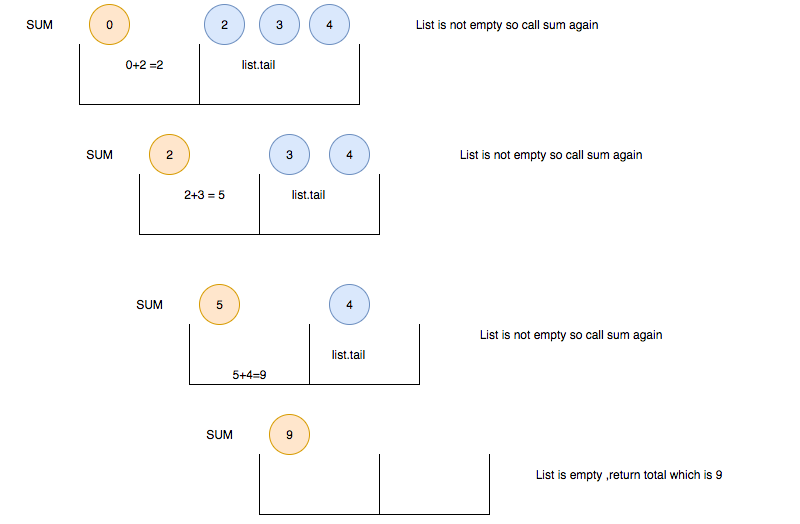How to think recursively
Recursion is when a function calls itself . I knew I had to use it when I wanted to traverse a binary tree , I knew I had to use it to compute factorial . After my first encounter with Functional Programming I realised that recursion was used to replace loops as loops were mutable and Functional Programming advocates immutability. Though not a Functional Programming concept , recursion is used in Functional Programming to replace loops . Then I figured out that any logic that made use of a loop could be made into a recursive function.
Think of how we would write a program to compute sum of the numbers in a list.
int sum(int[] list) {
int total = 0; // Clearly total is mutable
for (int n:list) total += n;
return total;
}
How can we write the same program without using the “for loop”
Here is the code in java
int sumRecursive(int total,List<Integer> list){
return (list.size()>0) ?
sumRecursive(list.get(0) + total,list.subList(1, list.size()))
: total;
}

Imagine we passed this function to another developer to call The first question would be “What do I pass to total ?” Ideally it should be 0 . What happens if I pass some other value ? The function wouldn’t work as expected.
Fortunately this problem has an easy solution . We wrap the recursive function with another function.
sum(int[] list){
sumRecursive(0,list);
}
Many functions on collections can be written recursively . Here are a few examples .
Counting the number of elements in a list
Searching for an item in a list
Finding the last item in a list